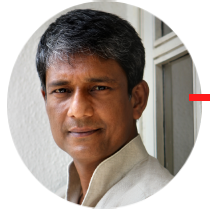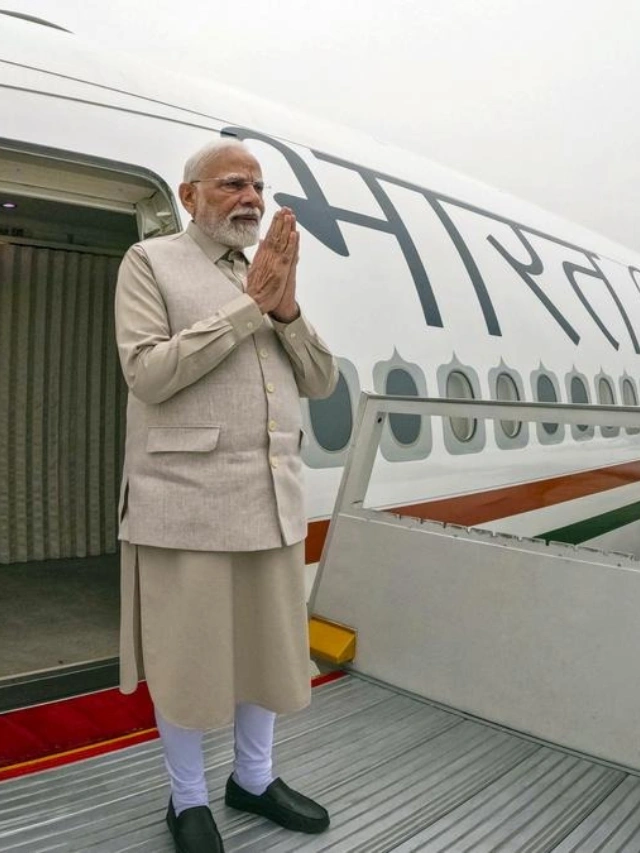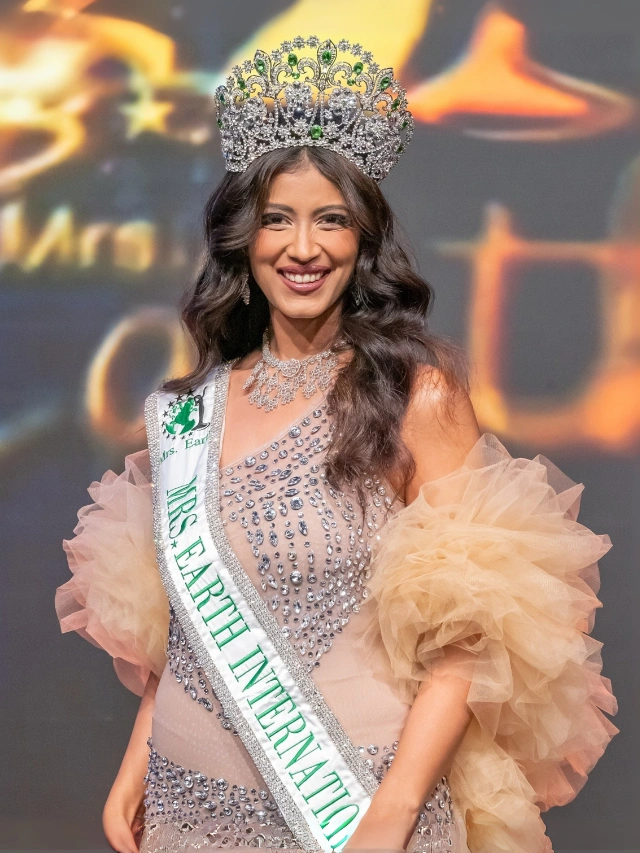Adil Hussain
Adil Hussain ranks among India’s most versatile actors. Born on October 5, 1963, he easily moves between independent films, mainstream Bollywood productions, and international cinema. His impressive filmography covers multiple languages and shows his talent as a global performer who brings depth and authenticity to every role.
The acclaimed actor got the most important recognition of his career at the 64th National Film Awards. He won the Special Jury Award for his performances in “Hotel Salvation” and “Maj Rati Keteki”. His remarkable experience started in Assam’s Goalpara district. Born into an Assamese Muslim family, he left home at 18 to study philosophy at B. Borooah College in Guwahati. His passion for acting took him to the prestigious National School of Drama in Delhi. He later trained at Drama Studio London with a Charles Wallace India Trust scholarship.
CEO’s | Actors | Politicians | Sports Stars
His linguistic talent sets him apart as he acts in English, Hindi, Assamese, Bengali, Tamil, Marathi, Malayalam, Norwegian, and French films. The year 2012 marked his international breakthrough with roles in Ang Lee’s “Life of Pi” and Mira Nair’s “The Reluctant Fundamentalist”. That same year, he played a key role in the Bollywood film “Agent Vinod” that showed his skill at balancing commercial and artistic cinema.

Early life and family background
Adil Hussain’s roots in Goalpara, Assam
Born in 1963 in Goalpara district of Assam, Khandkar Mohammad Adil Hussain was the youngest of seven children in an Assamese Muslim family. This small town on the Assam-West Bengal border played a significant role in shaping his artistic sensibilities. The town’s location, one of Assam’s most remote areas, still offered a surprisingly vibrant cultural environment that exposed young Adil to various art forms. His childhood near the Bangladesh border brought strong Bengali cultural influences, which created what he later described as “blurry lines” in his identity. This multicultural exposure became the foundation of his versatility as an actor.
Growing up in Goalpara, Adil’s life centered around modest circumstances. His family owned land but struggled with limited cash flow. “We grew up in a very humble household. We had land but very little cash. There were days when we ate dry rotis and tea without milk since we couldn’t afford it,” he once recalled. His father worked as a high secondary school headmaster before becoming a Muslim marriage registrar with no fixed salary. Their modest beginnings couldn’t diminish his home’s rich intellectual environment.
His multicultural heritage and upbringing
Adil’s ancestry tells a fascinating story of cultural diversity that shaped his view of the world. His family’s title “Khandkar” suggested their ancestral role as private tutors to Mughal Emperors. This distinguished lineage shows a long-standing tradition of scholarship and intellectual pursuit. His maternal grandfather came from Iraq, while his maternal grandmother’s heritage included Assamese, English, and Italian roots. This unique multicultural background gave him a distinctive point of view that enhanced his acting career.
Cultural exposure enriched Adil’s early years. “I’m blessed to be born in Goalpara, where I had my first exposure to Assamese culture. I also grew up listening to Bengali music, literature and songs. Goalpara is a culturally vibrant town, which influenced me a lot from a tender age,” he reflected. The rich blend of influences nurtured his artistic sensibilities early. His home environment celebrated art, literature, and music, which naturally developed his creative talents.
Religious identity added another complex dimension to Adil’s upbringing. His father kept a progressive outlook toward religion, though born into a Muslim family. “My father was allergic to the orthodoxy of religion,” Adil has mentioned. This open-minded approach helped him develop a philosophical understanding of spirituality rather than rigid religious dogma. He later chose spirituality over organized religion. His mixed cultural heritage and liberal upbringing helped him take on diverse roles with ease.
Influence of his father and siblings
His father’s impact shaped Adil’s development deeply. A passionate classical music lover and avid reader, his father created an intellectually rich home environment. Yet, he worried about Adil’s acting ambitions. Adil knew he wanted to act by age thirteen, but his father had concerns about his future. “The love went on and on, despite his father’s wish for him to become a professor of English,” one account notes. This clash between parental expectations and personal passion marked Adil’s early experience.
Financial constraints guided his education choices. His father’s retirement in 1982 meant Adil received only Rs 250 to study philosophy at B Borooah College, Guwahati – barely enough even then. Only his two eldest brothers could afford law studies at Guwahati University. These limitations helped build Adil’s resilience and determination.
Early acting experiences started naturally at home. Adil earned the title “the clown in the family” by imitating Bollywood heroes and sometimes his teachers during childhood. His natural talent for mimicry first entertained his family, then neighborhood gatherings. “I would absorb all their acts and after their show, I would come home and imitate them. I recall gathering friends from the neighborhood and performing in front of them. That’s how acting on stage started for me,” he explained. These spontaneous performances built the foundation of his successful acting career.
Sibling relationships molded his early years as the youngest of seven children. The large family dynamics helped him find his own voice. Though details about individual sibling relationships remain scarce, his eldest brother’s practice of communism shows the family’s diverse political and ideological influences. This environment of varied perspectives enhanced Adil’s adaptability and understanding – qualities that helped him portray complex characters effectively.
Discovering a passion for performance
School plays and early mimicry
Early theatrical beginnings shaped Adil Hussain’s childhood through his active participation in school plays in Goalpara. He acted in his first English play at age 8 in 1971, which lit a spark that grew into his life’s passion. Many actors find their calling later in life, but Adil knew acting was his destiny by eighth grade. This early certainty revealed his natural connection to performing arts.
Makeshift stages became young Adil’s creative playground. “Ours was a wooden house with a long veranda, where I used to build a makeshift stage and perform on it. I even organized award functions, cutting lovely photographs and pasting them on cardboards and then having a competition to see who wins,” he recalled. His creative spirit shone through these early performances and his drive to create opportunities.
Cinematic influences shaped young Adil’s artistic vision deeply. After watching “Mera Naam Joker” at age 10 – his longest movie experience with two intervals – he left the theater living the characters from the screen. The same happened after “Yadon Ki Baaraat,” where he walked out copying Dharmendra’s style perfectly. “Films have such an impact on shaping a person’s psyche. I watched a lot of films and plays and almost internalized them,” he noted.
Stand-up comedy with Bhaya Mama Group
The family comedian role came naturally to Adil through his gift for mimicry. He entertained his family by copying famous Bollywood stars like Amitabh Bachchan, Shatrughan Sinha, Raj Kapoor, and Raj Kumar. His talent soon reached beyond family gatherings. The seasonal Bihu functions in front of his house brought professional performers who fueled his comedy dreams.
Inspirational encounters with stand-up comedians Ratan and Shankar from Cooch Behar, Bengal left a deep mark on young Adil. The Sound and Comedy group, created by mime artists Moinul Haque and Dhrubajit Kishore Choudhury, also inspired him before becoming the famous Bhaya Mama comedy group. These early influences helped shape his understanding of performance and comedy.
The Bhaya Mama phenomenon took off in 1985 when Adil joined this satirical comedy group that became an Assamese cultural icon. As its youngest member, he gained fame for his perfect Bollywood star impressions during the audio cassette era when their recordings reached many homes. He spent six years perfecting his comedy timing with this group and became a regular at Bihu functions where their skits had audiences “in splits”.
Tragic ending struck the beloved comedy group in 1999 when six members died in an accident. Adil survived as one of the few remaining members of this talented group, carrying on their tradition of using social satire “to devastating effect” as he continued his artistic path.
Joining mobile theater in Assam
Professional transition began when Adil joined Hengul Theater in Assam at 18. This step took him from amateur shows to professional acting in Assam’s rich mobile theater tradition, where companies travel across the state performing shows. He devoted three years from 1994 to 1997 to this unique theatrical form.
Artistic development grew rapidly during his mobile theater years through experiences with different audiences and performance settings. These experiences helped him become a versatile and adaptable actor – skills that later defined his career across various media and languages. He also studied philosophy at B. Borooah College in Guwahati, building a thoughtful foundation that shaped his acting approach.
Serious theatrical endeavors balanced his comedy work during this time. Rukmal Hazarika’s guidance led him to explore Samuel Beckett’s theater of the absurd and perform a complex play “Sanglap, Sanket aru Akhora” (Dialog, Indications, and Rehearsals). Audiences “still much responsive and loved it” even with such challenging material, proving his ability to connect through sophisticated performances.
Formal training in acting
Studying philosophy and changing to drama
Academic foundation shaped Adil Hussain’s artistic experience. He earned a degree in philosophy at B. Borooah College in Guwahati. His passion for acting grew stronger during college years, and he took part in many college plays. His mind found expression through philosophical studies, but performing arts remained his true calling. This time marked a vital change in his life as he balanced academic work with artistic dreams.
Financial constraints shaped his educational path. “When he realized his family was not in a position to fund his fees for acting in schools, he decided to take it up on himself and do it all alone”. His father gave him just Rs 250 for education—nowhere near enough even then. Yet his determination stayed strong as he looked for other ways to develop his craft.
Practical experience came before formal training. Adil worked as a stand-up comedian for six years and joined mobile theaters in Assam. He also acted in local cinema productions. This helped him build a foundation of real-life skills that added value to his later formal education. He learned first through instinct and then through structured training to develop a detailed approach to his craft.
National School of Drama experience
Late beginnings marked Adil’s start in formal acting education. “I was already 27 by the time I joined the National School of Drama and felt that I was much late in making the move. That made me sleep less and work doubly hard, be it in the lessons, or the physical practices including martial arts, boxing etc.”. Starting later than others drove him to work harder. He lost 11 kg during this intense period.
Financial support came from NSD itself, which paid students Rs 550 monthly. This small amount helped him get through his training from 1990 to 1993. His journey at the National School of Drama began on May 15, 1990.
Exceptional mentorship helped shape his growth as an actor. His NSD teachers included:
- Khalid Tyabji (his first instructor at NSD)
- Robin Das and Nina Joshi
- Anamika Haksar and Arjun Raina
- Dr. Anuradha Kapur and Kirti Jain
- Naseeruddin Shah and Barry John
- Maya Krishna Rao and Sue Weston from Wales
Integrated education went way beyond standard acting methods. “To study acting, I never knew, I have to study history of art from Egypt to Ajanta Ellora to Japanese paintings to… modern renaissance, post-modernism… expressionism”. Khalid Tyabji taught him to “reinvent [his] physical body and learn how emotions work”. His education covered the complete range of artistic expression and human psychology.
Scholarship to Drama Studio London
International training became reality after Adil won the Charles Wallace India Trust Scholarship to study at Drama Studio London. This chance let him explore beyond Indian theater and discover Western performance techniques. His acting viewpoint grew more global afterward.
Philosophical quest guided his approach to international training. “My questions were very different from what the UK was offering me. They were training me to pertain to the market whereas I was looking for deeply philosophical nuances”. He joined the mobile ‘Hengul Theater’ in Assam after returning from London and worked there for three years.
Continuous learning stayed at the heart of his philosophy even after formal education. “After coming back from the UK, I felt I was still not enough of an actor to perform in front of an audience”. He sought more training with Khalid Tyabji, then with Swapan Bose at Sri Aurobindo Ashram in Pondicherry, and later with Dilip Shankar in Delhi. His endless quest to become skilled at his craft shows his deep commitment to acting.
Theater years and artistic growth
Notable plays like Othello: A Play in Black and White
Critical breakthrough came to Adil Hussain in 1999 when he performed in “Othello: A Play in Black and White,” directed by his NSD friend Roysten Abel. The production won him international acclaim and the prestigious Edinburgh Fringe First award. The play got excellent reviews from “The Scotsman” and “The Independent” in the UK, which established Adil as a powerful theatrical talent. His success led him to star in “Goodbye Desdemona,” also directed by Abel.
Shakespearean approach made Adil different from other actors. He broke traditional pentameter patterns based on his gut understanding of emotional meanings. “I tried to find a sentence in my Goalpariya dialect which would be equivalent to the line from Othello,” he said about his process. Shakespeare’s words became windows to emotional meanings rather than intellectual concepts for Adil.
Transformative experience shows how playing Othello changed him deeply. “From an actor’s point of view, Shakespeare’s plays give you the chance to feel tremendous emotions through your character – emotions you would never experience in real life,” he reflected. This role became a turning point in his artistic growth.
Training under Khalid Tyabji and others
Continuous learning defined Adil’s post-formal education years. He moved to Delhi in 1994 to launch his stage career. There, he trained deeply under Khalid Tyabji, who became one of his most influential teachers. “I owe so much to at least three teachers—two want to stay anonymous. But I can name Khalid Tyabji,” Adil has said.
Unconventional methods shaped his training with Tyabji. Adil watched Tyabji’s performance “A Fool’s Song” in 1993 and felt so moved that he asked to train with him. Tyabji gave him a challenge: earn Rs 1 lakh and buy an Enfield motorcycle before training could start. Adil worked in Assamese commercial theater, earned the money, and came back with the motorcycle.
Immersive experiences became central to his advanced training. Tyabji took Adil across rural India, including a village called Kurupar where they walked 50 km from Jagdalpur town and climbed for one-and-a-half days to reach. During their motorcycle trip, “Tyabji showed me India’s many people, faces, colors, rituals, customs, food, clothing and behaviors,” Adil remembered.
Additional mentors helped shape his artistic vision after NSD. He trained with Shaupon Boshu at Sri Aurobindo Ashram in Puducherry. Later, he studied under Dilip Shankar in Delhi, who changed his approach to acting. “Until we went to Puducherry, we trained just two hours daily and nothing was fixed. Each rehearsal felt so different that I felt lost,” Adil said about working with Shankar.
Role as artistic director and visiting faculty
Leadership positions emerged as Adil’s reputation grew. He led as artistic director and trainer at the Society for Artists and Performers in Hampi from 2004 to 2007. He mentored new performers and helped shape India’s next generation of theater talent.
International teaching spread his influence beyond India. He became a visiting faculty member at the Royal Conservatory of Performing Arts in The Hague, Netherlands. He also taught at Drama School Amsterdam, sharing his unique acting methods with European students.
Ongoing commitment to education shows through his role as visiting faculty at his alma mater, the National School of Drama. Adil keeps this connection despite his busy schedule, saying, “I could teach at NSD six-seven months yearly if they raised my salary”. His dedication to helping new talent shows how much he values passing on artistic knowledge.
Philosophical approach to teaching reflects his own path. “Since that day, the pressure to act well just left Adil. Now he only prepares how not to think about what he should do,” noted an observer of his methods. His teaching emphasizes feeling over technique, being real over being perfect.
Bollywood and indie film journey
Breakthrough with Ishqiya and Agent Vinod
Bollywood entry: Adil Hussain started with small roles in Vishal Bhardwaj’s Kaminey and Sona Jain’s For Real. His role in Abhishek Chaubey’s Ishqiya (2010) brought him recognition in Hindi cinema. He played Vidya Balan’s husband Vidyadhar Verma/Shyam Prasad Kulshreshtha, a local gang-lord.
Major breakthrough: His career took off with his first substantial role in Agent Vinod (2012), starring Saif Ali Khan and Kareena Kapoor Khan. During this period, he worked in Italian director Italo Spinelli’s Gangor, Mira Nair’s The Reluctant Fundamentalist, and Ang Lee’s Life of Pi. Critics quickly noticed his ability to adapt across different cinematic styles.
Roles in English Vinglish and Zed Plus
Critical recognition: His portrayal of Sridevi’s indifferent husband in English Vinglish (2012) earned him widespread praise. His sharp performance helped establish him as an actor who could leave a lasting impression even in supporting roles.
Leading role: Zed Plus (2014), a political satire by Chandraprakash Dwivedi, gave Adil his first lead role. Playing Aslam Puncturewala came as a surprise to him. “Very rarely one comes across a script which is sensible in India,” he said about this project. The character appealed to him because it showed “the social class which is most neglected in the name of development, a class which constitutes 70 percent of our population”.
Balancing commercial and indie cinema
Strategic choices: Adil Hussain carefully picks his films. “I always try to balance between commercial cinema and independent cinema so that I can manage to pay my bills as well as satisfy the artiste inside me,” he explained. This approach led him to work in mainstream films like Force 2, Commando 2, and 2.0 while also acting in acclaimed independent films such as Mukti Bhawan.
Industry insights: Adil’s view of the film industry shows how things have changed. He believes today’s filmmakers focus more on finding the “formula” for commercial success than telling unique stories. His script selection depends on the character’s depth rather than the paycheck.
Prolific year: 2015 marked his busiest year with releases in English, Hindi, Bengali, and his first Tamil and Marathi films. His work across different language industries shows his talent for bringing diverse characters to life.
Hollywood and international acclaim
Life of Pi and The Reluctant Fundamentalist
Global recognition came to Adil Hussain in 2012, a pivotal year that saw him in two major international productions. These roles established his credentials as a global actor. His performance in Ang Lee’s Oscar-winning Life of Pi transformed his career. Hussain remembers Lee as “a personification of humility” who “speaks in whispers, in the lowest possible note that is only meant for you”. The film’s budget of 110 million dollars yielded an impressive billion-dollar return worldwide.
Success struck twice with Mira Nair’s political thriller The Reluctant Fundamentalist, which made its debut at the 69th Venice International Film Festival. This post-9/11 narrative featured Hussain among other stars like Riz Ahmed, Kate Hudson, and Liev Schreiber. Hussain shared his experience: “Mira Nair is in love with actors and the art of acting. The way she treats actors, with so much love…her warmth towards the actors translates in her work”.
Adil Hussain in Star Trek: Discovery
Science fiction beckoned as Hussain joined the Star Trek universe in the third season of Star Trek: Discovery in 2019. He played Aditya Sahil, a character who waited 40 years at a space station to meet a Starfleet officer. His portrayal resonated deeply with the franchise’s global fanbase. The worldwide Star Trek community showered him with exceptional praise.
The cast’s welcome left an indelible mark on Hussain. His first day at Pinewood Studios in Toronto saw the entire cast and crew gathering in a circle to greet him. Lead actor Sonequa Martin-Green embraced him and expressed her excitement to collaborate. Hussain recalled, “The boundary broke and we were just two creative people on equal terms. I had one of the best shooting experiences of my film career”.
The rewards keep flowing even after filming. Hussain receives substantial residuals every few months. He shared, “Every three or four months, I get INR 42190.230 or INR 50628.270 (around ₹5 lakh). Crazy, no?” The network shares 1% of profits with him whenever the show generates revenue.
Working in Norwegian and French films
Europe embraced Hussain through Iram Haq’s Norwegian film What Will People Say, where he portrayed a strict Pakistani father. This performance earned him the prestigious Amanda Award (Norwegian National Award) for Best Actor in 2018. He dedicated his win to his roots, saying, “This award is for Goalpara, Assam, India for all those who believe that Art Can Break All Boundaries of All Kinds”.
His artistic reach spans multiple film industries. Beyond Norwegian cinema, Hussain has worked in French productions, making him one of few Indian actors to cross these cultural boundaries. His impressive body of work includes performances in English, Hindi, Assamese, Bengali, Tamil, Marathi, Malayalam, Norwegian, and French films.
Awards, honors, and recognitions
National Film Awards for Mukti Bhawan and Maj Rati Keteki
Critical acclaim peaked for Adil Hussain after he earned the National Film Award – Special Mention (feature film) at the 64th National Film Awards. His performances in “Mukti Bhawan” (Hotel Salvation) and “Maj Rati Keteki” brought him this recognition in 2017. This dual honor became the most important milestone in his acting career. The personal importance of this recognition showed clearly. Hussain said he would have felt “disappointed” if the President of India hadn’t presented his award, which was traditional. The following year’s ceremony sparked controversy, but he called himself “one of the lucky ones” who received the award through the proper protocol.
International accolades and film festival wins
Global recognition grew as Hussain claimed the prestigious Amanda Award (Norwegian National Film Award) for Best Actor in 2018. His role in “What Will People Say” earned him this honor. His recent triumph with “Footprints on Water” brought him Best Actor awards from five different film festivals. These included the UK Asian Film Festival in London, Indo-German Film Week in Berlin, International Film Festival of Cincinnati, Indian Film Festival of Ottawa, and Jagran Film Festival in Mumbai.
Adil’s earlier achievements shine through his Best Actor win at the New Jersey Independent South Asian Cine Fest for “Lessons in Forgetting” in 2012. He also won Best Actor at Prag Cine Awards for “Raag: The Rhythm of Love” in 2014. The London Indian International Film Festival added to his accolades with their “Outstanding Achievement Award 2020” for his contribution to global cinema.
Lifetime memberships and teaching roles
Academic recognition found Hussain in 2013 after he led a film workshop at University Film Club, Aligarh Muslim University. The university’s film club awarded him a lifetime membership. His connection to film education grew stronger. Sandeep Marwah honored him with lifetime membership of the International Film and Television Club of Asian Academy of Film & Television at Noida Film City.
Adil’s teaching contributions earned him visiting faculty positions at prestigious institutions. These included the National School of Drama, Film and Television Institute Pune, Royal Conservatory of Performing Arts in the Hague, and Drama School Amsterdam. These roles showcase his steadfast dedication to nurturing future actors while earning recognition for his artistic excellence.
Personal life and values
Marriage to Kristen Jain
Romantic beginnings shaped Adil Hussain’s personal life after meeting Kristen Jain during the 1999 Edinburgh Film Festival. Their story began on stage where Adil played Othello opposite Kristen’s Desdemona. The performance took an unexpected turn as Adil’s genuine emotions exceeded the script. Rather than “killing” her as planned, he hugged her tightly. This surprising moment stunned both Kristen and the audience, leading to an early curtain call. Their unconventional theatrical connection blossomed into love, and they married eight years later in 2007.
Family life revolves around their Greater Kailash home in New Delhi, where Adil lives with Kristen and their son Kabir. Their beautiful house backs onto a forest, creating a peaceful retreat from his busy schedule. His global recognition hasn’t changed his desire for privacy, and his family rarely appears in public together. Delhi’s ability to provide anonymity appeals to him deeply. “I like this home and have so many memories in Delhi that I don’t think I will move base,” he says.
Adil Hussain’s views on cinema and society
Artistic integrity defines Adil’s filmmaking philosophy. Reports highlight that “Acquiring wealth is not on Adil’s list”. He strikes a balance between commercial and artistic projects. “I don’t feel left out because of the money. I feel left out when I watch Scandinavian films or films from a foreign country, and think, ‘Oh, I could have done this film'”.
Social responsibility shapes his view on cinema’s power. “We must be responsible for how we use that medium. Cinema shapes and influences youngsters’ psyche – their lingo, their idea of romance, of how they look at women and men, relationships, countries, society,” he emphasizes. He believes filmmakers should think carefully about depicting violence: “I’m not saying never show violence. I’m asking, why are you showing the violence? Are you condoning it? Or are you encouraging it? The intent behind it”.
Also Read: Journey of of Ali Fazal.
FAQ
What are some notable movies of Adil Hussain?
Adil Hussain has acted in several acclaimed films across Indian and international cinema. Some of his notable movies include Life of Pi (2012), where he played Santosh Patel, English Vinglish (2012) as Sridevi’s husband, and Mukti Bhawan (2017), which won him a Special Jury Mention at the National Film Awards. He has also worked in Assamese films like Maj Rati Keteki (2017) and Kothanodi (2015). His performance in The Storyteller (2025), based on Satyajit Ray’s short story, further solidified his reputation as a versatile actor.
Did Adil Hussain act in Kabir Singh?
Yes, Adil Hussain played the role of the Dean of the medical college in Kabir Singh (2019). However, he later expressed regret for being part of the film. He criticized its misogynistic themes and stated that he walked out of the theater within 20 minutes due to discomfort with the film’s portrayal of relationships. Hussain believes in socially responsible storytelling and openly spoke against the film’s problematic narrative, emphasizing the need for cinema that promotes positive values and gender equality. His remarks sparked discussions on the ethics of filmmaking in Bollywood.
Who is Adil Hussain's wife?
Adil Hussain is married to Kristen Jain. He has kept his personal life relatively private, and not much information is publicly available about his wife. Hussain, known for his deep involvement in cinema and theater, prefers to keep his family life out of the limelight. His wife supports his artistic journey, but they rarely make public appearances together. Despite his global recognition, Hussain remains humble and values his privacy, focusing more on his craft and contributions to meaningful cinema rather than discussing his personal relationships in media interactions.
Which Assamese movies has Adil Hussain acted in?
Adil Hussain has played key roles in Assamese cinema, bringing regional films to a broader audience. His acclaimed Assamese movies include Kothanodi (2015), an anthology based on traditional folktales, and Maj Rati Keteki (2017), which won him a National Film Award. He also starred in Raag: The Rhythm of Love (2014), a musical drama, and Dr. Bezbarua 2 (2023), a sequel to a classic Assamese film. Hussain’s contributions to Assamese cinema have helped in elevating the industry’s recognition, showcasing the depth of storytelling from Northeast India to a global audience.
What is Adil Hussain’s net worth?
Adil Hussain’s estimated net worth ranges between $3 million and $5 million as of 2025. His wealth comes from his extensive career in Indian and international cinema, including Bollywood, Hollywood, and regional films. Apart from acting, he earns through theater, brand endorsements, and workshops. Despite his success, he leads a simple life and is deeply committed to independent and meaningful cinema rather than commercial projects. His participation in critically acclaimed films has contributed more to his artistic legacy than financial gains, as he prioritizes storytelling over box office numbers.
How old is Adil Hussain?
Adil Hussain was born on October 5, 1963, in Goalpara, Assam. As of 2025, he is 61 years old. Over the years, he has built a reputation as a versatile actor known for his impactful roles in cinema. With decades of experience in acting, both in India and internationally, he continues to be a significant figure in the film industry. Despite his age, Hussain remains active in films, theater, and social initiatives, using his influence to promote quality storytelling, regional cinema, and responsible filmmaking in the Indian entertainment industry.
Has Adil Hussain acted in short films?
Yes, Adil Hussain has worked in multiple short films that highlight his acting prowess. One of his most popular short films is Chutney (2016), co-starring Tisca Chopra, which gained significant acclaim. He also starred in Bandhi (2015), a thriller set during Diwali, and Doctor, Nurse & The Patient (2018), which was well received at international film festivals. These short films showcase his ability to convey powerful emotions in a limited runtime, proving his versatility as an actor across different storytelling formats beyond full-length feature films.




